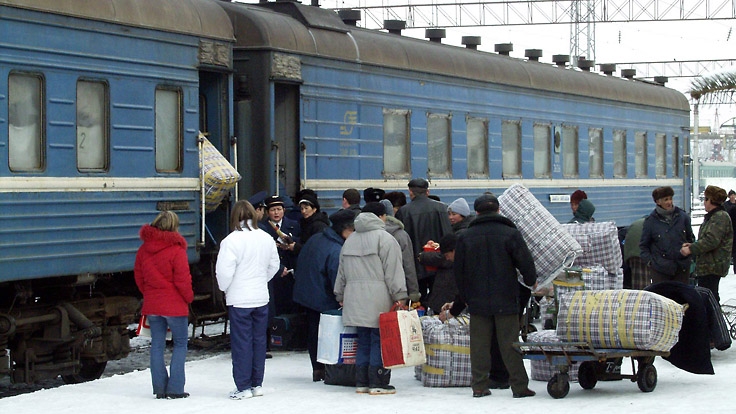Overview
Migration and Remittance Peer-assisted Learning (MiRPAL) is a network for migration practitioners in the CIS countries and is set up to collect, analyze, deepen, create, and share knowledge on migration issues as well as provide a forum for cross-country collaboration as a means to refine and harmonize approaches in order to initiate and guide CIS migration policies and practices. Currently, MiRPAL brings together nine CIS countries: Armenia, Belarus, Kazakhstan, Kyrgyz Republic, Moldova, Russia, Tajikistan, Ukraine, and Uzbekistan. More information can be found at: www.worldbank.org/eca/migration and www.worldbank.org.
Program's Overall Objectives:
(i) Demonstrate how managed and regulated migration process can contribute to economic and social development
(ii) Offer advice to countries on how to manage migration process in their counties
(iii) Build and share knowledge on migration which would be applied to other parts of the world
MiRPAL is a DFID-funded program that involves the International Organization for Migration (IOM), UN Women, and the World Bank as implementers. Program frame and rationale was designed based on extensive DFID-funded regional review of Labor Migration (LM) issues, conducted by the Oxford Policy Management (OPM) and relied on initial experience of the World Bank in this area through the initial activities funded under the South-South Trust Funds and Innovation Grants.
Key Partners: Governments of Armenia, Belarus, Kazakhstan, Kyrgyz Republic, Moldova, Russia, Tajikistan, Ukraine, Uzbekistan; statistical offices of MiRPAL Program countries such as CIS STAT, ROSSTAT.
Key Development Partners: European Commission (EC), Eurasian Development Bank, the International Organization for Migration (IOM), UN Women, UNICEF.
Main Components
Technical Assistance in developing country-specific action plans to further improve migration management systems and serve as a roadmap on migration policies/institutions and projects for both governments and donors. It also helps to improve coordination within the government and between the donors. Country-specific action plans will identify “quick wins” in each country, in particular focusing on: (i) policy level actions needed to improve management of labor migration, skill development, and remittance; (ii) institutional reforms needed to support policy level actions; and (iii) program/project level interventions to support identified reforms.
Analytical work includes analysis of the results of the household surveys as they relate to migration in Europe and Central Asia and the CIS countries in particular, and provides short, medium, and long term policy recommendations to improve the migration policy in the region.
Migration Knowledge Management calls for creation of a network of experts and technical officials, who would share experiences and expertise, follow up on national efforts, encourage regional initiatives, and publicize local and international experiences on knowledge-based migration management. It also facilitates regional collaboration and building Knowledge Migration in the region.
Advocacy and Outreach component focuses on communication, learning, knowledge sharing, and general outreach.
Results
Through the use of various innovative distance and face-to-face learning methods, MIRPAL has achieved the following results during 2009-2012:
First policy forum for migrant sending and receiving countries was created in 2009 at the request of the governments as a first step in establishing dialogue on migration policy. A set of Conferences were held in Russia and Armenia. In May 2012, the Third Annual Conference of MiRPAL took place in Dushanbe, Tajikistan and was devoted to the Role of the State in Managing Labor Migration Programs.
“Moscow regional migration protocol” was established to institutionalize the commitment of the member countries to implement migration reforms on the national level.
In Russia, MiRPAL’s advocacy and knowledge sharing work helped raise the visibility of migration in the public and policy discourse.
In Tajikistan and Kyrgyz Republic, MiRPAL helped establish country-specific migration strategies and action plans which were approved by the governments.
In Tajikistan, a new government migration service was established which specifically addresses labor migration issues.
In Russia, a new law on permits for migrants was adopted to tackle the issue of illegal migration. The law makes the issuance of work permits easier and more transparent.
A regional remittance estimation Working Group is established and led by the Russian National Bank to implement the regional remittance improvement Action Plan with members from other CIS central banks.
Three analytical studies on migration have been commissioned (two completed as of March 2011) to analyze migration policy in Russia and provide input to the ongoing development of a new labor migration strategy in Russia.
Two action plans on migration statistics and remittances statistics are being used by member countries to harmonize data collection, reporting, and terminology.
